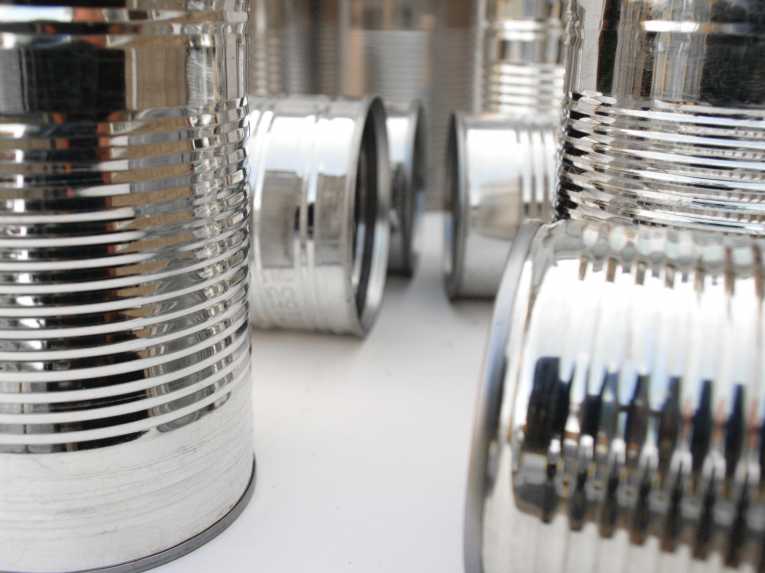As acronyms go, BPA has something of a fuzzy warm feel to it; perhaps the Boston Philharmonic Association or the British Philosophical Assembly? But the claims and counterclaims swirling around bisphenol A are anything but warm, or fuzzy. Its widespread use has become a contentious issue, as scientists, lawmakers and activists slug it out, over whether to ban the BPA.
That's because this plastic-derived chemical has been associated with worries about child development, poor health and even de-sexing for some time. Some countries have gone so far as to ban it. But some scientists have remained ambivalent, saying the although concerns are valid, the evidence remains thin. So do you need to worry about having BPA in you life?
Two studies published yesterday have added to this ongoing debate about BPA - one notching up another worry about its health implications; and a second offering hope that BPA-free bottles and containers do just what they say on the packet - offering consumers a choice if they want to cut BPA out.
But why the worry about BPA? After all, if health-activists are to be believed, we are all heavily exposed to BPA, with a study showing that 96% of pregnant women have BPA in their blood. Despite that, we are not all keeling over from its toxic effects.
However, the concern over BPA is focused on more subtle effects. The compound is an organic chemical, widely used to make polycarbonate plastics and epoxy resins, helping to soften them up. As such it finds itself into all manner of everyday objects. But the fact that those objects include baby feeders, the linings of food cans and pop bottles means that BPA readily gets into our bodies, young and old.
That could be a problem, because bisphenol A is a type of chemical known as an 'endocrine disruptor'. It means that BPA mimics the actions of certain hormones, specifically estrogen. This has led to worries that it could affect various aspects of the sexual reproduction system in humans.
Animal studies have reinforced those concerns, with reports of ovary and womb problems in mice, differences in sexual behavior in rats and monkeys, and problems with gut inflammation and asthma. Only last month, a study on deer mice confirmed male-mice became 'de-masculinized' when exposed to low-levels of BPA in the womb.
Yesterday's study, published in the journal Environmental Health Perspectives, adds another black mark against BPA - the possibility that it may be linked to low-thyroid activity, along with another plastic-softening chemical group, the phthalates.
The problem is that other studies have contradicted some of these findings, and there has been a lack of consistency between them - in both the methods used, and the doses tested. Some scientists believe there isn't yet enough evidence for a total ban.
That hasn't stopped Canada and Denmark enacting a ban on BPA in infant feeders and bottles; and California is in the throes of a tussle between lawmakers and regulators over whether such a ban should be introduced there. Possibly what the scientists may be missing, when pressing for a firm 'weight of evidence' of toxicity, is the benefit of using the 'precuationary principle', in the eyes of the consumer.
If you're dealing with something unknown, where the risks can't be tightly tied down because of complexity, or because more work needs to be done, reassurance from regulators and experts may be no good. And the US Food and Drug Administration (FDA) does appear to have recognized that it is better to be safe than sorry.
It is not recommending a ban - but it is working on several initiatives to remove BPA from the most vulnerable consumers - infants - by getting manufacturers to exclude it from their feeders and bottles. Other manufacturers have taken note of the public concern, and have introduced 'BPA-free' bottles and cans for drinks and foods.
That is where the second of yesterday's studies, published in Chemosphere offers some reassurance. It comes from University of Cincinnati researchers, who looked at a variety of BPA-free products. In general, away from the value-end of the market, those claims stood up to the team's tests. Little BPA was found to have leaked, even into boiled water, from co-polyester plastic, uncoated stainless steel or aluminum lined with EcoCareâ„¢.
So while the scientists assess the risks - and activists press their case - the public at least has some choice over whether they want BPA banned from their food and drink. But as always with public health issues, getting this information out to everyone - so they can make an informed choice - is an uphill task. Ultimately, where safety is paramount, legislation is needed. Calls to ban BPA likely won't go away fast.
Top Image Credit: © monticellllo










